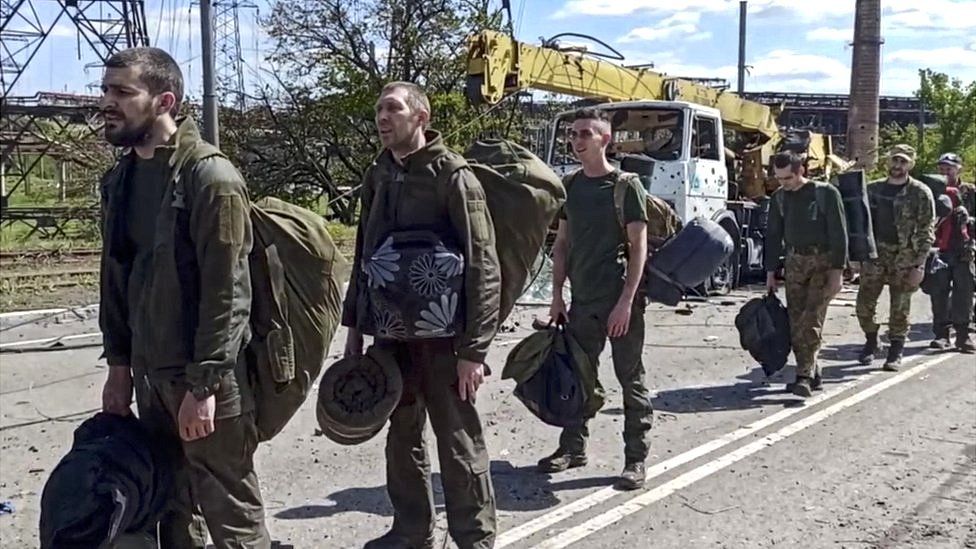Ukraine war: Helping families find missing loved ones

In a quiet manor house in the hills above Geneva in Switzerland, the dominant languages are Russian and Ukrainian.
(BBC) In a quiet manor house in the hills above Geneva in Switzerland, the dominant languages are Russian and Ukrainian.
This is the Central Tracing Agency, run by the International Committee of the Red Cross (ICRC). Its role is to reunite people separated by conflict, to find the missing, to visit prisoners of war and to let their families know where they are.
Now, with the war in Ukraine, they're busier than ever.
The Red Cross has been helping families find their loved ones lost in war since 1859, when Henri Dunant, the founder of the ICRC, came across soldiers dying after the battle of Solferino in northern Italy.
"He collected a letter from a wounded soldier," explains the agency's head, Jelena Milosevic Lepotic. "The soldier's only concern, even though he was losing his life, was that his mother would not know what had happened to him, and he wanted the letter to be sent to her."
Now, the Red Cross is trying to bring news to worried mothers in Ukraine and Russia.
"We are very busy," admits Jelena.
The ICRC says it has registered hundreds of prisoners among those who surrendered at the Azovstal steel plant in the southern Ukrainian port city of Mariupol in May.
Red Cross officials will not disclose exactly how many, but they are getting prisoner lists from both Russian and Ukrainian forces, and the numbers are believed to run into the thousands.
Equally high are the numbers of families desperate for news. In the tracing agency's mailroom, up to 400 emails are coming in each day. The agency has already informed almost 1,800 families about the whereabouts of missing loved ones.
The heart of the tracing agency is the call centre. Here, agency workers contact families to let them know their husband, son, or brother is a prisoner of war. They also answer calls from relatives seeking news, and they pass on messages - from wife to husband, from son to mother.
Those messages range from the practical to the heart-breaking.
"I took a message from a Russian POW to his mother," says Anastasia Kushleyko, who is head of the Russian section at the tracing agency. "He told her: 'Mum, don't worry, I'm OK. But if you have it to hand can you send me grandma's telephone number in Kyiv? If I'm released I'll stop by and see her.'
"So he's a Russian POW in Ukraine, and his grandmother lives in Kyiv. That tells you everything about this war."